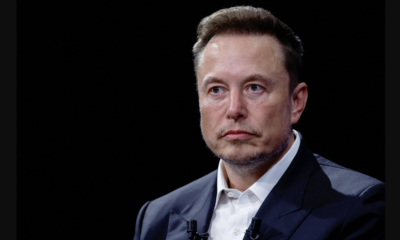DEI Policies
Target CEO Steps Down as Sales Slump and DEI Backlash Mounts
One of Target’s most damaging missteps has been its retreat from diversity, equity, and inclusion (DEI) initiatives earlier this year. The move, intended to ease political pressures, instead alienated loyal customers and even sparked a boycott.
Target is entering a new era of leadership after CEO Brian Cornell announced his resignation following 11 years at the helm. The move comes as the retailer faces declining sales, customer backlash, and mounting competition from Walmart, Amazon, and Costco.
Brian Cornell, who revitalized Target after taking over in 2014, will step down on February 1, 2026, transitioning into the role of executive chairman. His successor is Michael Fiddelke, Target’s current chief operating officer, who began his career with the company as an intern two decades ago.
A Difficult Transition
While Brian Cornell was credited with remodeling stores, improving Target’s digital strategy, and steering the brand to record performance in 2018 and through the pandemic, recent years have been rocky. Sales have fallen for three consecutive quarters, sending Target’s stock down 10% in premarket trading and cementing its place among the worst-performing companies in the S&P 500 this year.
Some analysts question the decision to appoint an insider rather than bringing in an external leader with a fresh perspective. “This is an internal appointment that does not necessarily remedy the problems of entrenched groupthink,” said Neil Saunders, analyst at GlobalData Retail.
Target CEO Brian Cornell is stepping down on February 1 after the retailer reported weak sales numbers. The company announced Chief Operating Officer Michael Fiddelke, a 20-year company veteran, will succeed him. @JoLingKent reports what’s behind the change.… pic.twitter.com/J8QgiQWpzo
— CBS Evening News (@CBSEveningNews) August 20, 2025
DEI Backlash and Shifting Shoppers
One of Target’s most damaging missteps has been its retreat from diversity, equity, and inclusion (DEI) initiatives earlier this year. The move, intended to ease political pressures, instead alienated loyal customers and even sparked a boycott.
“People re-evaluated and started driving extra miles to go to other places,” Rev. Jamal Bryant, who led a protest against Target, told CNN. Even members of the Dayton family, descendants of Target’s co-founders, criticized the company’s actions as “a betrayal.”
Combined with consumer belt-tightening, Target’s reliance on discretionary items such as clothing and home goods has made it vulnerable. In contrast, Walmart’s heavy focus on groceries has insulated it from the downturn.
McDonald’s Boycott Launches Over DEI Rollback, Activists Target More Brands This Summer
Tariffs and Inventory Troubles
Another challenge is tariffs. Target imports nearly half of its merchandise, far more than Walmart, which makes it harder to absorb rising costs. Analysts say Target often has to raise prices at nearly double the rate of competitors.
Adding to the strain, Target’s pandemic-era boom in home goods left the company with a glut of unsold inventory just as inflation began to bite.
Incoming CEO Michael Fiddelke says the brand must “improve and realize its full potential.” His turnaround plan, dubbed “Fun 101,” aims to reintroduce trendier merchandise, modernize stores, and invest in technology to lure shoppers back.
As Target’s leadership changes hands, the retailer faces its toughest test yet: winning back the American shopper it once knew so well.








































Pingback: From Calibri to Chaos: Why Marco Rubio Is Fighting Over Fonts